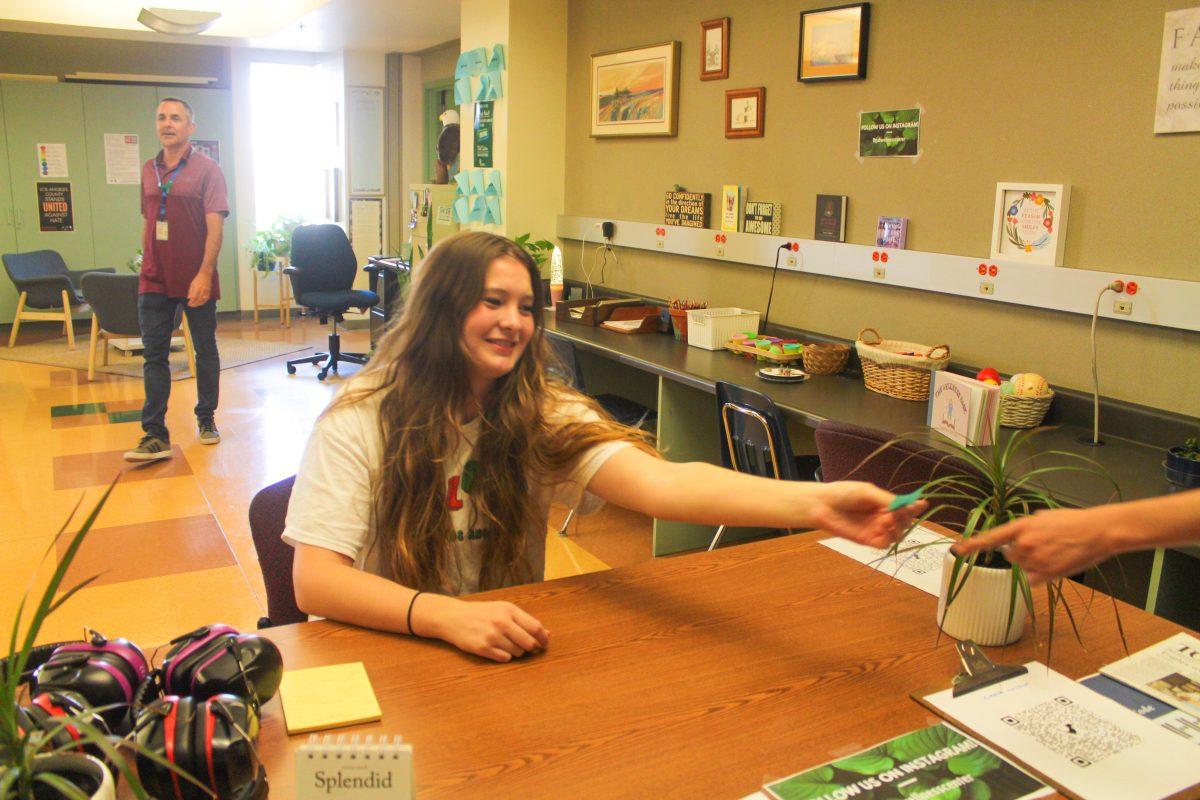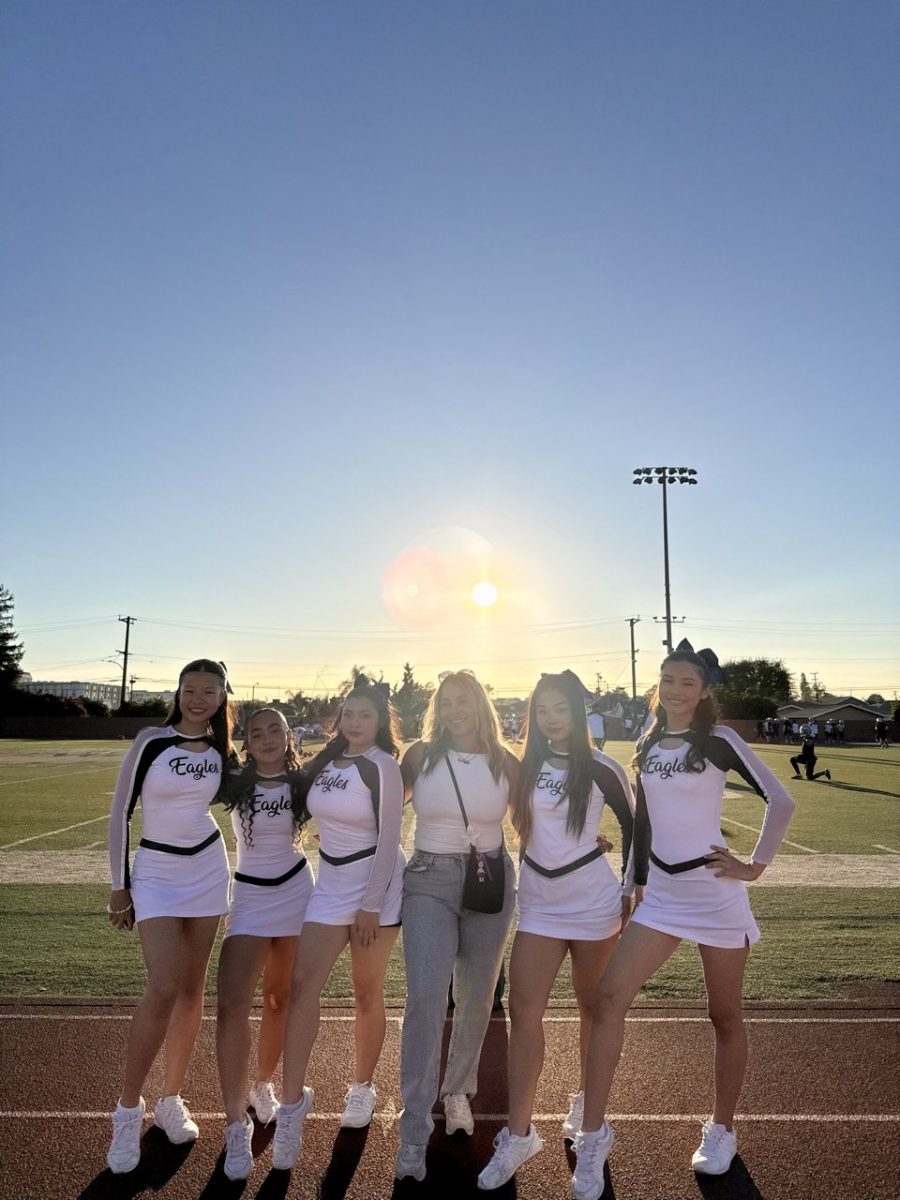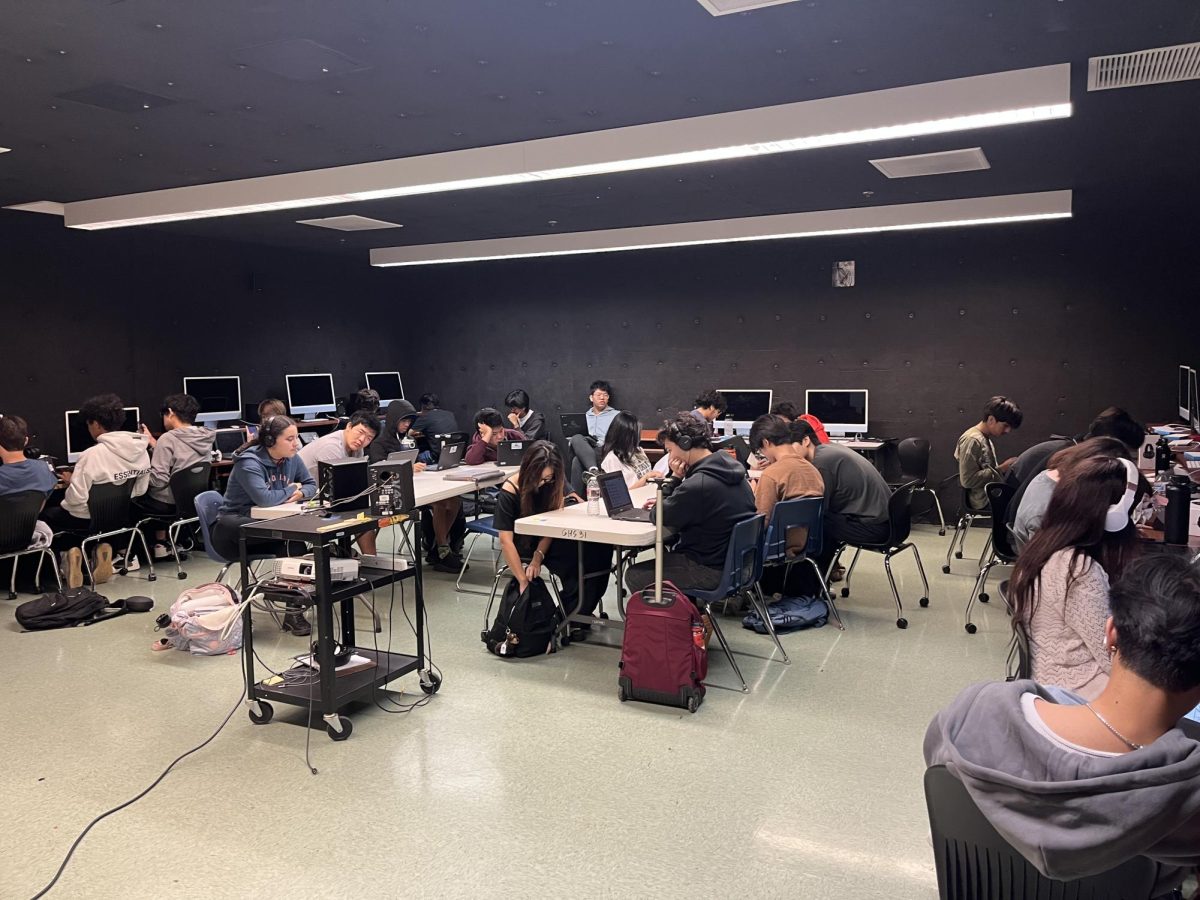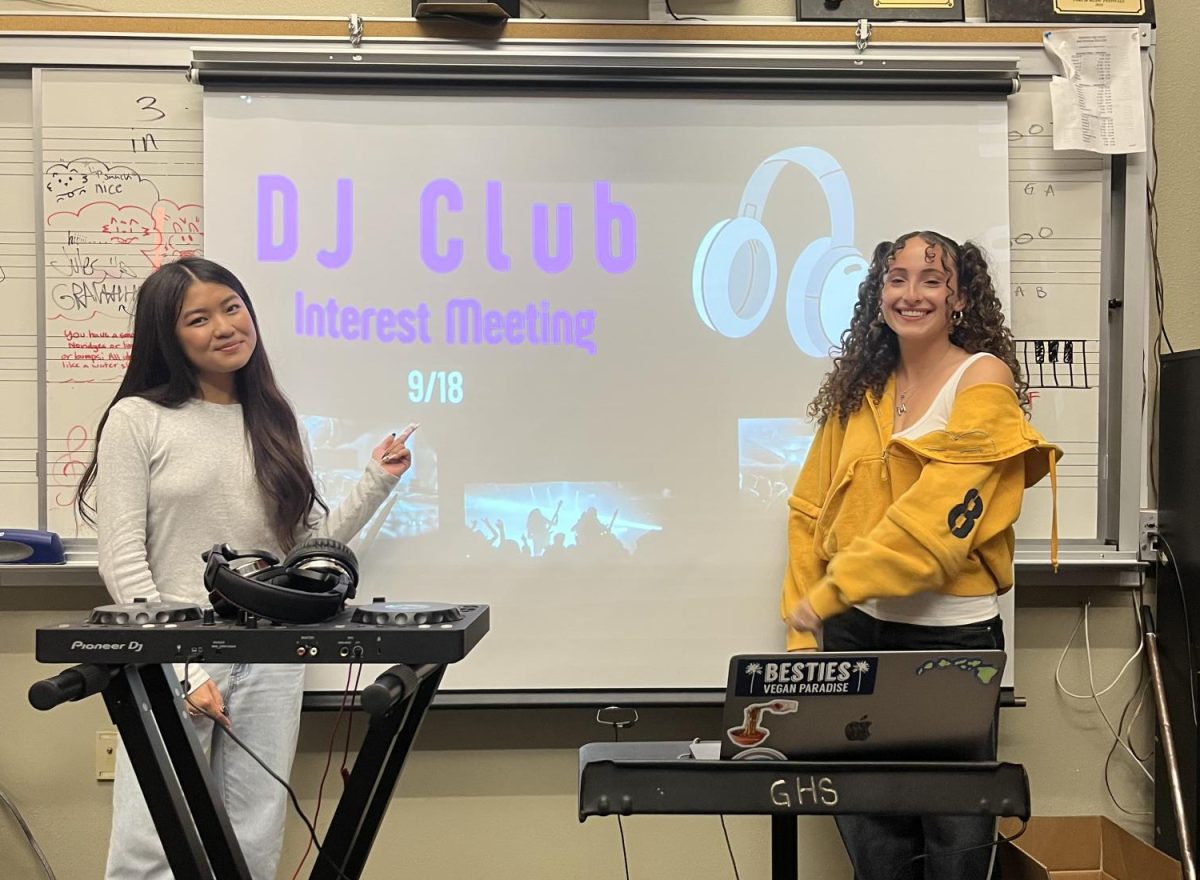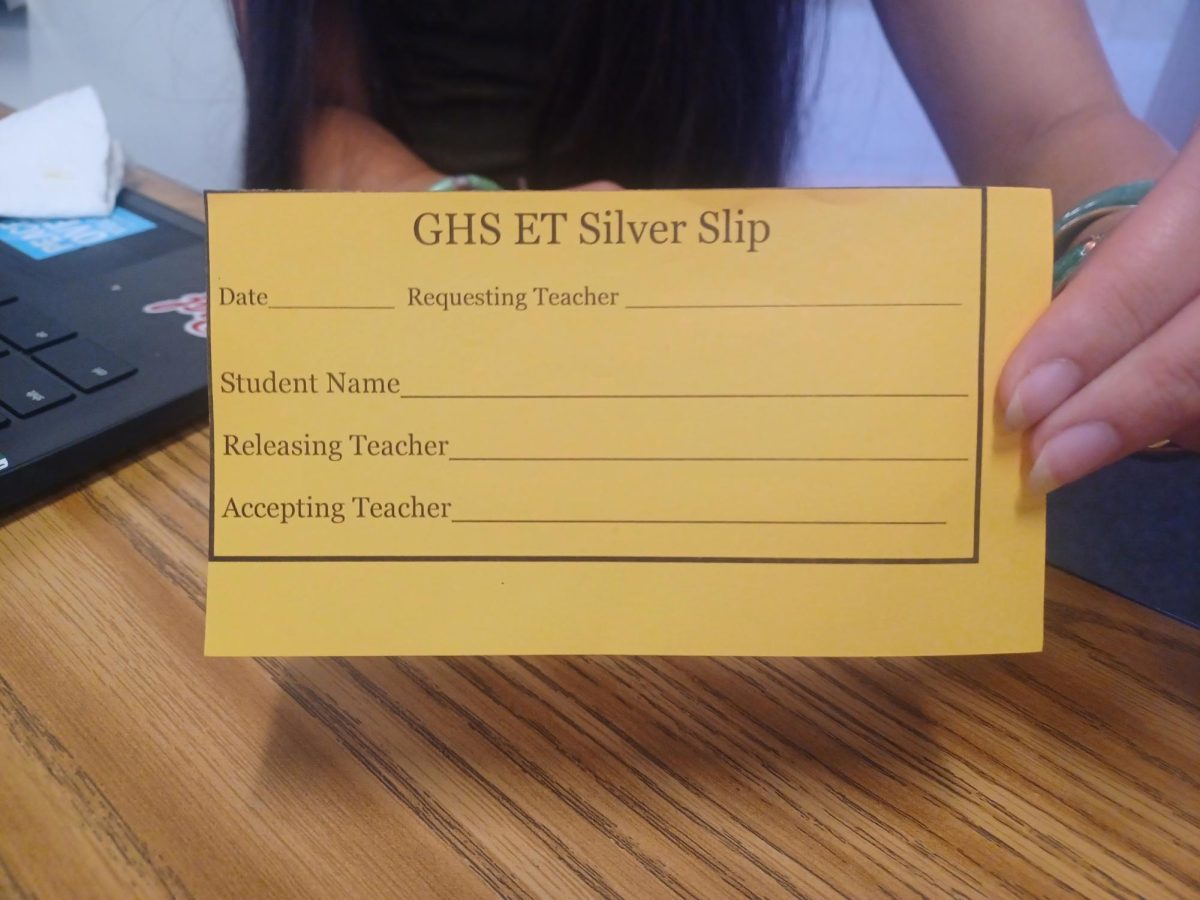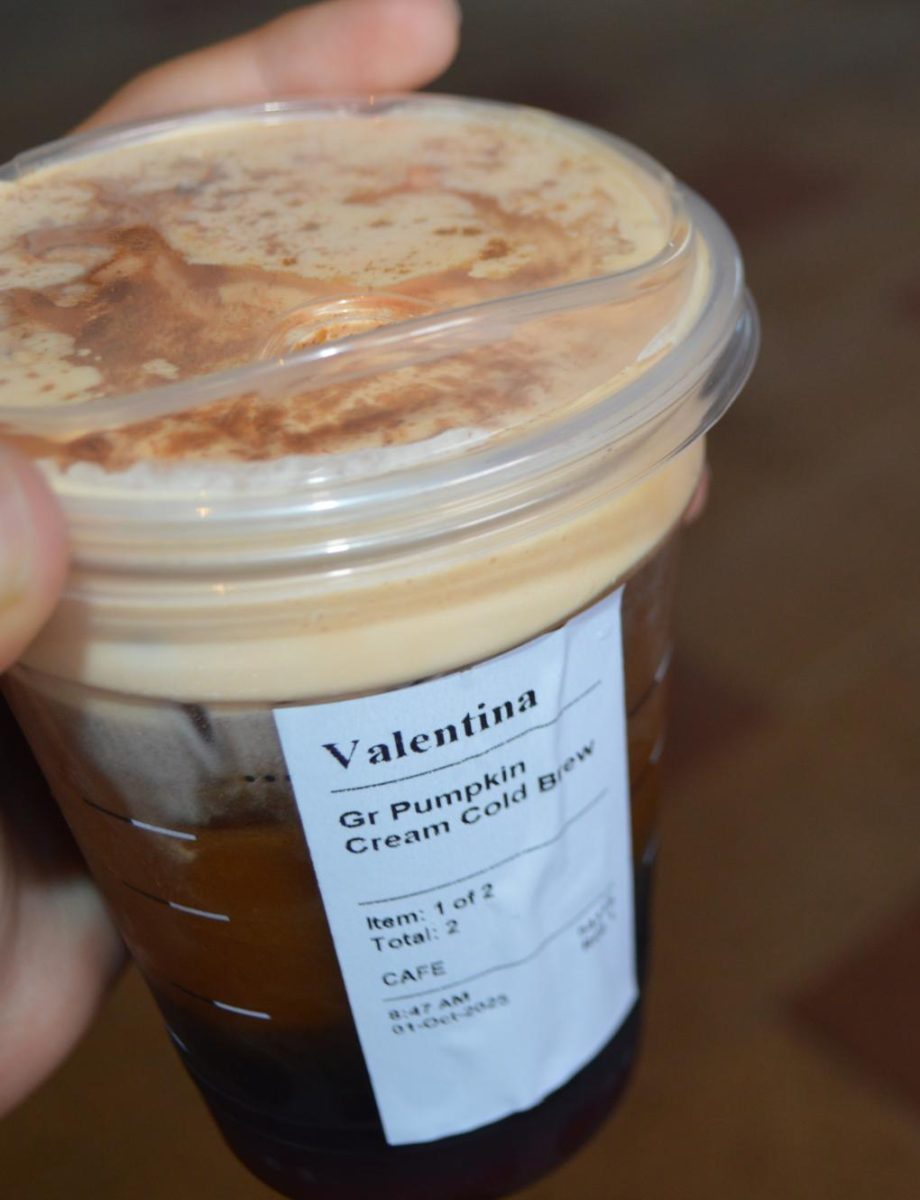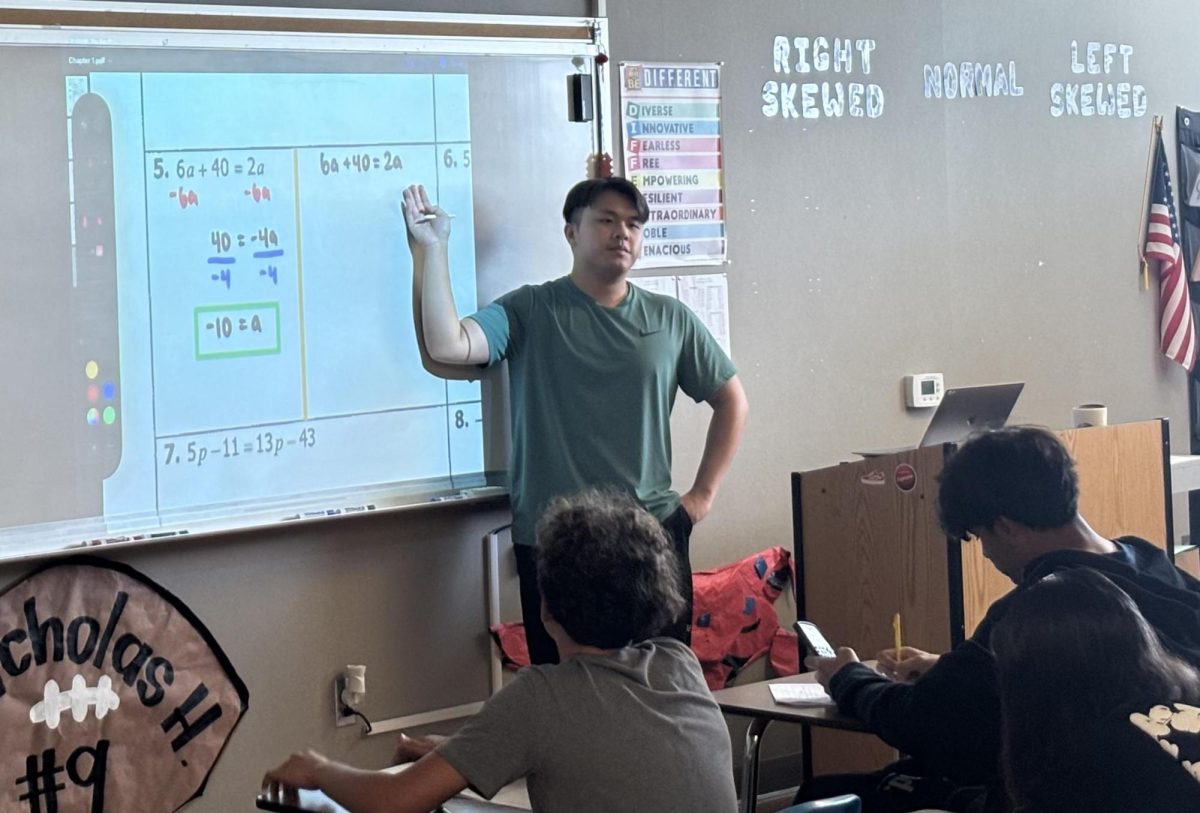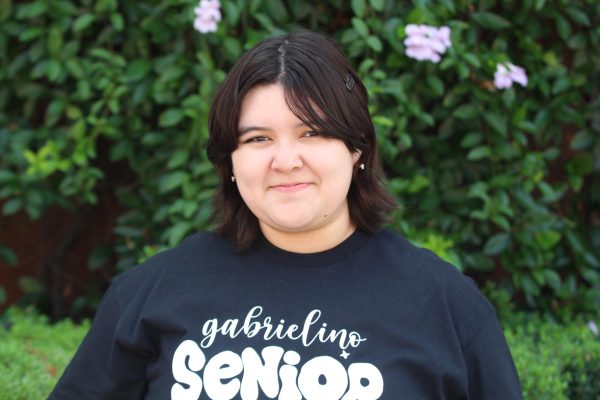Unlike most seniors at Gabrielino High School, Emilia Esseln does not attend first period class – instead, she works as a peer helper in the Wellness Center. Esseln is one of few students who has dedicated all four years of high school to the Peer Helping program.
Peer Helping is a Career Technical Education (CTE) elective that prepares students to support one another through an informative introductory course, Peer Helping 1. In Peer Helping 2, participants take on bi-monthly student caseloads. Esseln is in her second year of Peer Helping 3, which allows students to work with their peers in the Wellness Center under former counselor Christopher Saporito’s guidance.
Influenced by her sister – who was a peer helper herself – Esseln learned the ropes as a freshman before applying her knowledge to real-world interactions. Unfortunately, Esseln’s first chance to meet with students came during the pandemic, so she could only interact with them via Zoom: something she described as “so difficult”.
But the prospect of in-person interactions had excited Esseln, who thought: “Wow. […] I’m gonna be able to be there for them, with them.” She doubled down on the program the following year, taking Peer Helping 2 and Peer Helping 3 concurrently when Gabrielino fully reopened.
The leadership, Esseln recalled, was also what had kept her returning.
“Both Mr. Saporito and [Peer Helping 1 & 2 advisor] Mr. Budde are very good at making students feel noticed as individuals,” Esseln commented. “They remember your name, your story.”
Sure enough, the experience proved enticing.
“Once you become a part of that system,” Esseln reflected, “it doesn’t become something that you want to let go of.”
In the Wellness Center, Esseln does everything from delivering call slips to stocking snacks, but her primary focus remains being “someone students can bounce their ideas off of.” Advice, she emphasized, is a general no-go.
“In the end, I’m not [a] therapist. I’m not [a] psychiatrist. I’m 17. I’m not qualified to tell people what to do,” said Esseln. “It’s so hard for me to understand. Why would you trust me? I’m just a kid in the Wellness Center. […] [But] I try my best to be trustworthy so I can help those people.”
Despite these doubts, after three years in Peer Helping, Esseln is more than qualified to listen to those who reach out.
“If you give them the opportunity [to talk],” Esseln observed, “they do.”
Esseln also acknowledged how difficult it can be to “open yourself up to people, […] to give your time, your effort, your commitment.” Even so, it is certainly rewarding.
“The more you give back to the program,” Esseln said, “the more it gives back to you.”
For Esseln, helping others has also taught her a great deal about herself.
“I think that period of self discovery [I underwent] was learning to like myself,” Esseln commented. “I’ve learned that I need to take care of myself before I take care of others.”
Although Esseln does not plan to study psychology or offer development services, Peer Helping her taught valuable life skills that apply far beyond the classroom.
“Really, if everyone could learn to have those healthy and mature conversations, the world would be a better place. It’s cheesy,” Esseln admitted with a smile, “but… that would be really important.”

